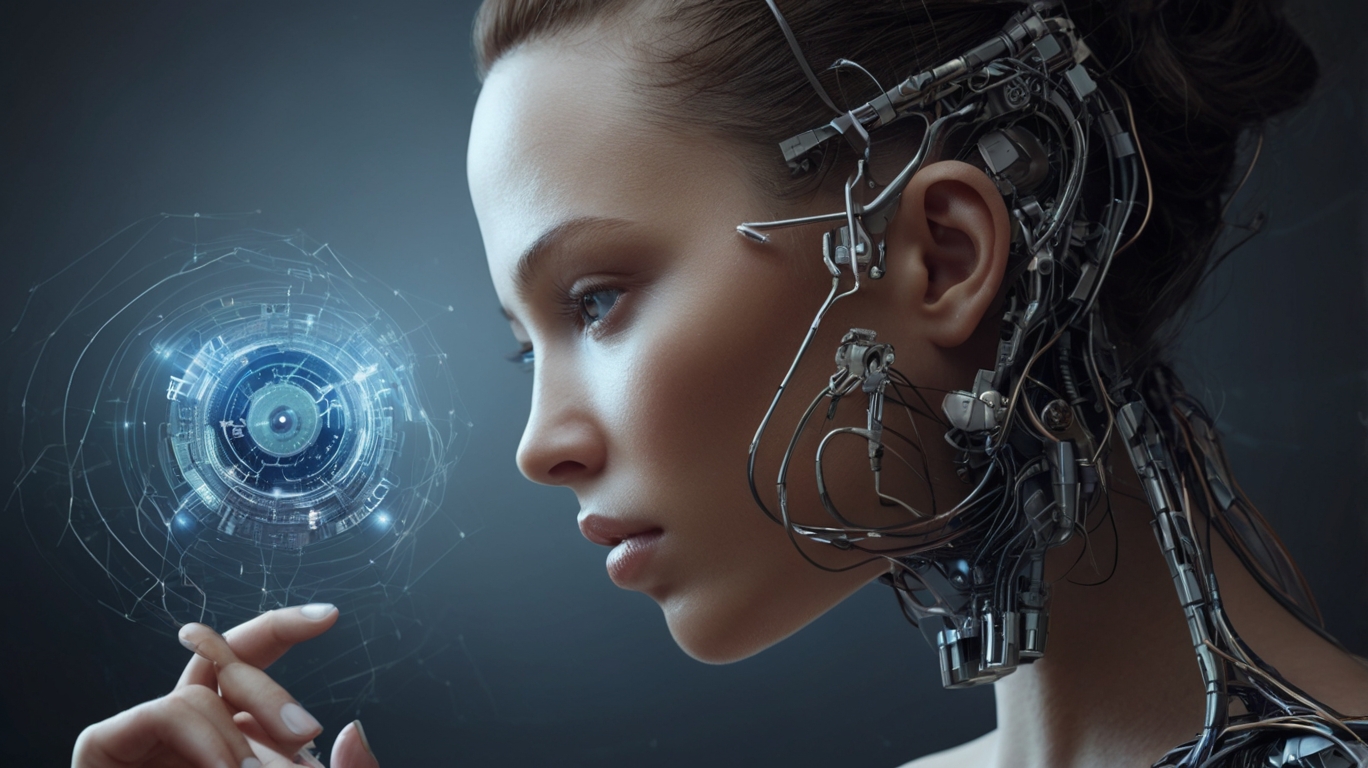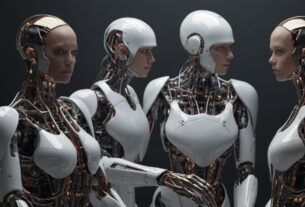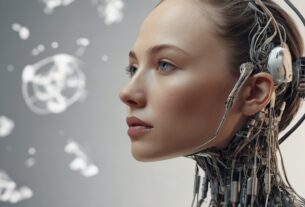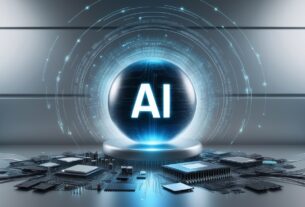Artificial Intelligence Revolution:
In the last decade, few technological innovations have ignited as much excitement, debate, and disruption as Artificial Intelligence (AI). What was once confined to the realms of science fiction is now embedded in our daily routines—whether it’s your smartphone’s voice assistant, predictive algorithms on your favorite streaming platform, or real-time fraud detection on banking apps. But beyond convenience, AI is fundamentally reshaping industries, transforming the job market, and redefining what it means to be human in a world shared with intelligent machines.
The Rise of Artificial Intelligence: From Concept to Catalyst
AI isn’t a new concept. The idea dates back to the 1950s when Alan Turing posed the question, “Can machines think?” Today, not only do machines “think,” but they learn, adapt, and outperform humans in a growing list of tasks. The convergence of massive datasets, powerful computing, and advanced machine learning models—particularly deep learning—has fueled the recent AI explosion.
AI has evolved from narrow applications, like chess-playing computers, to systems that drive cars, generate human-like text, and analyze complex medical images. The pace is unprecedented, and what’s more remarkable is how AI has become a catalyst for change across nearly every industry.
Revolutionizing Industries: AI’s Expanding Influence
Healthcare: Saving Lives with Algorithms
AI is arguably making its most profound impact in healthcare. With machine learning, doctors can now detect diseases like cancer earlier and with greater accuracy. For example, AI systems trained on thousands of mammograms can spot early signs of breast cancer better than some radiologists. Chatbots and virtual health assistants are offering round-the-clock support to patients, reducing the strain on overburdened systems.
AI is also revolutionizing drug discovery. What used to take years can now be compressed into months using AI models that simulate how different compounds interact with human cells. During the COVID-19 pandemic, AI played a pivotal role in predicting outbreaks and accelerating vaccine development.
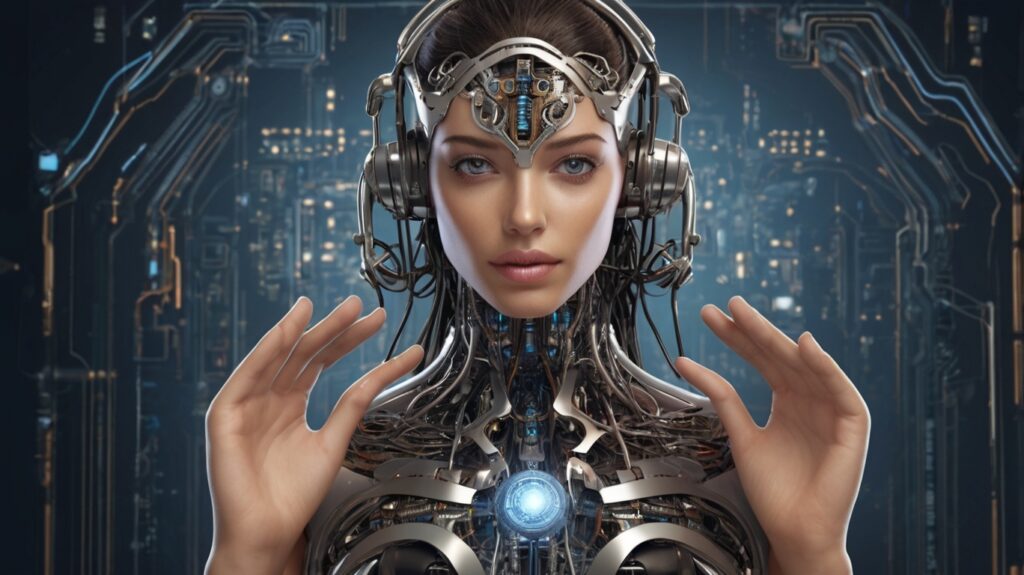
Finance: The Algorithmic Brain of the Market
In finance, AI has become the invisible force behind everything from trading algorithms to fraud detection. High-frequency trading bots execute transactions in milliseconds, analyzing market conditions that no human could react to fast enough.
Customer service has been transformed as well. AI-powered chatbots manage thousands of queries simultaneously, providing instant support while learning from every interaction. Additionally, AI is used for credit scoring, assessing risks more holistically and inclusively than traditional methods.
Manufacturing: Smart Factories and Predictive Maintenance
AI is breathing new life into the manufacturing sector through the advent of smart factories. Sensors, machine learning, and IoT (Internet of Things) technologies are allowing for real-time monitoring of equipment, predictive maintenance, and optimized production lines.
Predictive analytics reduce downtime and improve efficiency, while computer vision systems ensure quality control with unmatched precision. Robots guided by AI are now working alongside humans in collaborative roles, often handling the more dangerous or repetitive tasks.
Retail and E-Commerce: Personalization and Efficiency
From virtual fitting rooms to AI-generated product recommendations, retail has been transformed by artificial intelligence. Personalization engines now suggest products tailored to individual preferences, increasing customer satisfaction and sales.
Supply chains have also been optimized with AI forecasting tools that predict demand patterns and prevent overstocking or understocking. Warehouses use AI-driven robots for picking and packing, significantly reducing delivery times and human error.
Education: Customized Learning for Every Student
In the education sector, AI is enabling a shift toward personalized learning. Adaptive learning platforms analyze how students interact with content and adjust the curriculum in real time to fit their pace and style.
Teachers are also leveraging AI to automate administrative tasks, freeing up more time to focus on student engagement. Additionally, language translation and speech recognition tools are breaking down barriers, making quality education more accessible globally.
The Job Market: Disruption or Opportunity?
One of the most debated aspects of AI is its impact on employment. Will machines replace humans? The answer is both yes and no.
Automation vs. Augmentation
AI is automating routine and repetitive tasks. Jobs in manufacturing, customer service, and logistics are particularly vulnerable. For instance, autonomous trucks may eventually displace millions of drivers, and AI chatbots could reduce the need for human call center agents.
However, AI is also augmenting human capabilities. In fields like healthcare, law, and finance, AI tools are not replacing professionals but enhancing their ability to process information, make decisions, and deliver results. Surgeons use AI-assisted robots, lawyers use AI for legal research, and journalists use AI to analyze data and even write preliminary drafts.
The Rise of New Jobs
History shows that technological revolutions destroy some jobs but create others. The AI revolution is no different. New roles are emerging, such as AI ethicists, data curators, algorithm auditors, and machine learning engineers. Demand for skills in AI development, data science, cybersecurity, and robotics is surging.
The challenge lies in preparing the workforce for these new roles. Reskilling and upskilling are crucial. Governments, companies, and educational institutions must collaborate to ensure that workers are not left behind in the AI transition.
Ethical Concerns: Bias, Privacy, and Control
With great power comes great responsibility. AI’s growing influence has raised serious ethical concerns.
Algorithmic Bias
AI systems are only as good as the data they’re trained on. If the training data reflects societal biases, the AI will likely perpetuate or even amplify them. This has already been observed in facial recognition systems that perform poorly on people with darker skin tones or recruitment algorithms that favor male candidates over female ones.
Ensuring fairness, transparency, and accountability in AI systems is paramount. Developers must build bias detection and mitigation mechanisms into their algorithms and engage diverse stakeholders during the development process.
Data Privacy
AI systems often rely on vast amounts of personal data. Without strict safeguards, this data can be misused. The line between personalization and surveillance is thin, and it’s up to policymakers to create frameworks that protect individuals while enabling innovation.
The Fear of Control
There’s a growing fear that we might eventually lose control over AI. As systems become more autonomous, the question arises: who is accountable when an AI makes a harmful decision? Should we allow AI to make life-and-death decisions, such as in military drones or self-driving cars?
Some experts call for a “pause” in the development of superintelligent systems until robust safety measures are in place. Others advocate for the development of “explainable AI” that humans can understand and regulate.
The Human-AI Relationship: Redefining Humanity
As AI becomes more integrated into our lives, it forces us to reconsider what makes us uniquely human. Is it creativity? Empathy? Consciousness?
Interestingly, AI is helping us appreciate our human qualities even more. While machines can replicate knowledge and patterns, they still struggle with emotional intelligence, moral reasoning, and true creativity. These distinctly human traits are likely to become more valued in an AI-driven world.
There’s also a philosophical question: should AI be treated as tools, partners, or something more? As AI systems become more lifelike, some people are forming emotional connections with them—raising ethical and psychological questions we’ve never had to face before.
The Road Ahead: Embracing Change with Caution and Curiosity
The AI revolution is not a distant future—it’s already here. It’s in our homes, hospitals, classrooms, and workplaces. The challenge is not to stop it but to shape it in ways that benefit all of humanity.
We must ensure that AI remains a tool that empowers rather than oppresses. This requires responsible development, inclusive policies, continuous education, and above all, a human-centered approach.
The AI revolution is, at its core, a human story. It’s about how we adapt, evolve, and rise to the occasion. As we stand at the crossroads of history, we have the opportunity to guide this powerful technology toward a future that is smarter, fairer, and more compassionate.
Artificial Intelligence Revolution:
Frequently Asked Questions (FAQ)
1. What is Artificial Intelligence (AI)?
Artificial Intelligence refers to the simulation of human intelligence in machines that are designed to think, learn, and problem-solve. These systems can perform tasks such as visual perception, speech recognition, decision-making, and language translation.
2. How is AI transforming industries today?
AI is revolutionizing industries by increasing efficiency, improving decision-making, and automating tasks. In healthcare, it aids in diagnostics and drug discovery; in finance, it enables algorithmic trading and fraud detection; in manufacturing, it powers smart factories and predictive maintenance.
3. Will AI take away all our jobs?
Not all jobs will disappear, but many will change. AI will automate routine and repetitive tasks, but it will also create new job roles and augment human capabilities in areas like healthcare, education, and creative industries. Reskilling and adaptability will be key for future job security.
4. What types of jobs are most at risk due to AI?
Jobs involving repetitive manual or clerical tasks are most at risk, such as data entry, customer service, basic logistics, and certain manufacturing roles. However, roles that require empathy, creativity, critical thinking, and complex decision-making are less susceptible.
5. What are some new jobs that AI is creating?
New AI-driven roles include data scientists, machine learning engineers, AI ethicists, algorithm auditors, prompt engineers, and human-AI interaction designers. These roles require skills in data analysis, coding, critical thinking, and ethical reasoning.
6. Can AI be biased?
Yes, AI can reflect and even amplify human biases if the data it is trained on contains biased patterns. This is a major ethical concern in areas like hiring, law enforcement, and lending. Developers must implement fairness and transparency in AI systems to mitigate these risks.
7. Is AI safe and secure?
AI systems can be secure if developed responsibly, but they also pose risks—especially when deployed without oversight. Threats include privacy violations, algorithmic bias, job displacement, and even the potential misuse of autonomous weapons or misinformation tools.
8. How does AI affect our privacy?
AI systems often rely on large datasets, which can include personal and sensitive information. Without strong regulations and safeguards, AI can lead to intrusive surveillance or data misuse. Transparent policies and ethical guidelines are essential to protect individual privacy.
9. What is explainable AI and why does it matter?
Explainable AI refers to systems that can provide understandable justifications for their decisions. It’s crucial in fields like healthcare, finance, and law, where decisions can have significant impacts. It helps build trust, accountability, and better human-AI collaboration.
10. What should we do to prepare for an AI-driven future?
To prepare, individuals should focus on lifelong learning, particularly in areas like digital literacy, data science, and emotional intelligence. Governments and organizations must invest in education, create ethical AI policies, and ensure inclusivity in AI development.
Read also :

